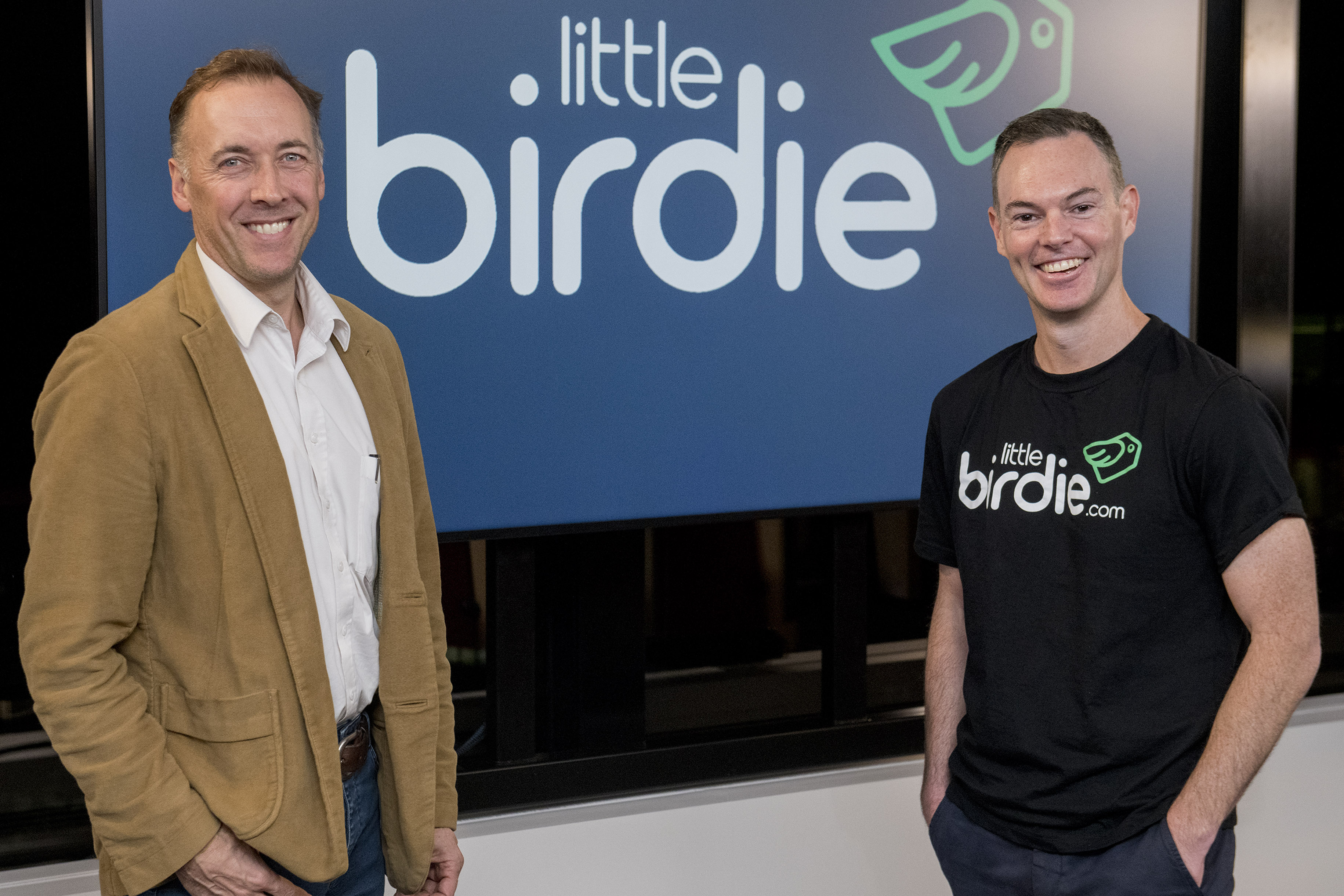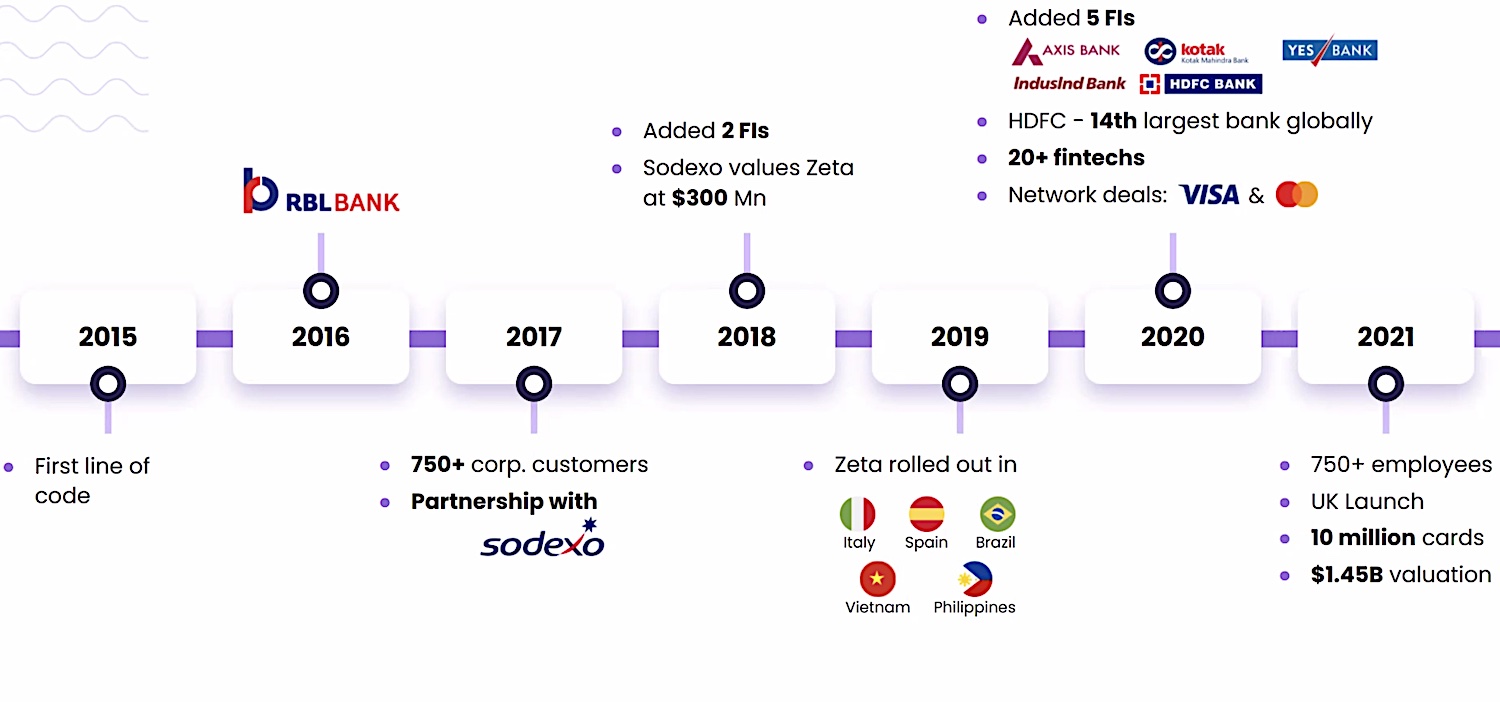News: The Station: London scooter winners and Ford’s most important EV
The Station is a weekly newsletter dedicated to all things transportation. Sign up here — just click The Station — to receive it every weekend in your inbox. Hello and welcome back to The Station, a weekly newsletter dedicated to all the ways people and packages move (today and in the future) from Point A to
The Station is a weekly newsletter dedicated to all things transportation. Sign up here — just click The Station — to receive it every weekend in your inbox.
Hello and welcome back to The Station, a weekly newsletter dedicated to all the ways people and packages move (today and in the future) from Point A to Point B.
I want to point to two Extra Crunch articles before jumping into the rest of the news and analysis. Yes, Extra Crunch requires a subscription. We’re ramping up the transportation analysis and features in EC and I hope you find it worthwhile.
We’re ramping up our founder Q&A series. The first one was an interview with Revel founder and CEO Frank Reig. This time, it is Arrival founder Denis Sverdlov, who founded his first company at 22 selling IT consulting software to enterprise customers. Since then, he has built and exited multiple companies, most notably telecommunications operator Yota Group. He also founded Roborace.
We have two more interviews coming up with Veo co-founder and CEO Candice Xie and Refraction AI co-founder Matthew Johnson-Roberson.
Finally, we published a piece that examines voice recognition in vehicles, a marketplace that has tech giants like Google and Amazon competing for space with a few up and comers and established suppliers like Cerence.
A friendly reminder that my email inbox is always open — and yes, I do read your messages. Email me at kirsten.korosec@techcrunch.com to share thoughts, criticisms, offer up opinions or tips. You can also send a direct message to me at Twitter — @kirstenkorosec.
Micromobbin’
Dott, Lime and TIER have won the long-awaited, much-coveted bid to operate e-scooter shares in London. The pilot, which will run for up to 12 months, will begin June 7 in some of London’s boroughs, including Canary Wharf and the City of London. More neighborhoods are expected to join as the year progresses, according to TfL. Lambeth and Southwark are also seeking participation. Between 60 to 150 scooters will be available initially in each borough.
This announcement is significant not only because London is one of the biggest targets for micromobility shares, but also because Transport for London is very keen on collecting data from the scooter companies that will help determine how e-scooters could be integrated into a sustainable transport pandemic recovery plan.
Can micromobility address the racial wealth gap?
The Bedford Stuyvesant Restoration Corporation released a report entitled Cementing an Equity Framework for Micro Mobility that talks about next steps for its NYC Better Bike Share Partnership and outlines goals for fostering equity and opportunity for communities of color through public transportation.
“Creating a truly equitable bikeshare system is about more than just placement of stations and the price of fares. It requires deep partnerships with the community and empowering the voices of those who have been traditionally underserved,” said Laura Fox, General Manager of Citi Bike. “We are grateful to the Bedford Stuyvesant Restoration Corporation for their leadership and ongoing efforts to create a culture of cycling, particularly by addressing street safety. As this progress report highlights, we have many accomplishments to be proud of and we look forward to continued partnership to build on these successes.”
Accessible mobility is one of the major drivers of wealth, and I’m a big proponent of the potential for active forms of mobility, from e-scooters to push bikes and everything in between, to both help cities cut emissions and help residents stay healthy.
From a startup’s perspective, can you even contribute to this equitable goal and also make money? I’ll be discussing this in a few weeks at our TC Mobility Event on June 9 with advocate and consultant Tamika Butler, CEO and co-founder at Remix, Tiffany Chu, and CEO and co-founder of Revel, Frank Reig.
Spinning tales of SPACs…
The aftereffects of Bird going SPAC last week is that now we’re all wondering which micromobility company is going to go SPAC next. Will it be Lime? TIER? Or maybe Spin? Bloomberg reported Ford is considering divesting Spin, according to “people familiar with the matter.”
Currently, we have a lot of whisperings and speculation and not a lot of facts. Rumors circulating involve Spin spinning off from Ford or merging with a special purpose acquisition company. Spin did not want to comment, and I think that’s fair given the nebulous shape of this “news.”
While we’re on the subject of Bird…
Bird is working with IT Asset Partners (ITAP) to give its batteries a second life. So, when a scooter reaches the end of its life, it’s broken down for parts, with batteries shipped over to ITAP. Then ITAP breaks down each battery module to the cellular level to get as many reusable battery bits as possible.
This is not only an eco-friendly way to do business, but it’s also increasingly necessary in a world that’s going electric faster than supply can keep up with.
“The circular economy is where the world is going, and it will help determine how global businesses function over the next 10 years,” said Robert Mullaney, Director of Business Development at ITAP, in a Bird blog post announcing the partnership. “As battery technology has improved year over year, their second life potential has increased as well, allowing them to be used in broader and more advanced applications. This includes things like computers and computer chargers.”
— Rebecca Bellan
Deal of the week
Is it me or am I seeing more activity in the aviation/eVTOL sector these days? We’ve had three SPACs — Lillium, Archer and Joby — plus a smattering of other funding news in the past four months.
And now, there’s one more to add to the list. Electric aviation startup Beta Technologies closed a $368 million Series A funding round with investments from Amazon’s Climate Pledge Fund. The new capital is the second round of funding announced by the company this year, after the company raised $143 million in private capital in March. Beta’s valuation is now at $1.4 billion, putting it in a small circle of electric vertical take-off and landing (eVTOL) unicorns.
The funding round was led by Fidelity Management & Research Company, with undisclosed additions from Amazon’s Climate Pledge Fund, a $2 billion fund established in September 2019 to advance the development of sustainable technologies. The Climate Pledge fund has also made contributions toward electric vehicle manufacturer Rivian, battery recycler Redwood Materials and ZeroAvia, a hydrogen fuel cell aviation company.
Beta is a bit different from other high valuation eVTOL startups. The Vermont-based company isn’t primarily focused on air taxis. Instead, it’s been targeting defense applications, cargo delivery and medical logistics, as well as building out its network of rapid-charging systems in the northeast U.S. Its debut aircraft, the ALIA-250c, was built to serve these various solutions by being capable of carrying six people or a pilot and 1,500 pounds.
Other deals that got my attention …
Mile Auto, insurance tech startup, raised $10.3 million in a seed funding round that includes investment from Ulu Ventures, Emergent Ventures, Thornton Capital, and Sure Ventures. The company said it will use the funding to expand availability of its insurance offering to half of the U.S. auto insurance market by the end of 2021, as well as hiring, adding new distribution channels, onboarding of white-label partners and expanding its automaker network. Mile Auto has also partnered with Ford Motor to offer auto insurance to owners. Mile Auto launched a similar program with Porsche Financial Services in 2019.
Portside, an aviation startup that is building a platform for managing the backend of a corporate flight department, charter operation, government fleet and fractional ownership operation, today announced that it has raised a $17 million funding round led by Tiger Global Management, with participation from existing investors I2BF Global Ventures and SOMA Capital.
Twaice, the German battery analytics software company, raised $26 million in Series B funding led by Chicago-based Energize Ventures. The company, which primarily works in the mobility and energy storage industries, now has a total financing of $45 million.
Virtuo, a Paris-based startup that lets people rent a car for a few days, or up to a few months, has raised $96 million. The funding money will be using to invest in its tech and to expand to more markets beyond France, U.K. and Spain.
Waybridge, a company that has created a supply chain platform for raw materials, raised $30 million in a Series B funding round co-led by Rucker Park Capital and Craft Ventures, with participation from Venrock. The company has developed a digital platform that lets customers track inventory and shipments. Waybridge’s pitch is that its product can help companies navigate disruptive events like the Suez Canal traffic jam and COVID-19.
WeaveGrid raises $15 million Series A round to enable widescale adoption of EVs on the electric grid. Coatue and Breakthrough Energy Ventures will join existing investors to drive software innovation at intersection of utility and automotive sectors.
Wejo, the British automotive-data startup backed by General Motors, is in talks to go public through a merger with Virtuoso Acquisition Corp., Bloomberg reported.
Policy corner
Welcome back to Policy Corner! A decision from a little-known but very powerful California regulator caught my eye this week. The California Air Resources Board, which regulates air quality in the state, adopted new rules on Thursday that will require 90% of ride-share trips to be completed by electric vehicles by 2030.
It’s important to remember that ride-sharing giants Uber and Lyft have both vowed to go 100% electric fleets by that year, but this is the first time that a state has adopted EV requirements for ride-share companies. In written comments submitted ahead of the hearing, both Uber and Lyft urged the Board to create EV rebates that are specifically targeted at high-mileage drivers and fleets, and to install EV chargers in “urban and traditionally underserved areas.”
“California’s EV incentive programs and EV infrastructure investments over the past decade have served an exclusive population―wealthy, white, homeowners―that does not reflect Lyft’s driver population,” Paul Augustine, Lyft’s senior manager of sustainability, said in submitted comments.
Back over in Washington, there was a hearing at the House Committee on Energy and Commerce about the ways in which new automotive technologies (like autonomous driving) might enhance vehicle safety and help cut down on the many thousands of automotive deaths that occur on U.S. roads each year.
AV proponents like the Self Driving Coalition point to the many possible safety benefits of AVs. Electrical engineer Ragunathan Rajkumar, who testified at the meeting, urged lawmakers to advance a policy framework to support innovation to ensure America stays competitive against foreign rivals in AV technology.
However, the committee also heard testimony from people who urged a careful and pragmatic approach to AVs. Greg Regan, in testimony representing the AFL-CIO, argued that transportation workers should have a place at the table in conversations about AV deployment. He also said that the government should enact policy to ensure that the AV manufacturing industry yields secure jobs for American workers. Jason Levine, executive director of the Center for Auto Safety, argued that other safety and design upgrades, as well as improved vehicle performance standards, could do much to save lives in the near-term.
“The idea that tens of thousands of unproven and unregulated AVs deployed quickly and without oversight, or a significant upgrade in highway and road infrastructure, will automatically be safer than what we have now may make for a good talking point in a quarterly earnings report — but is not good transportation policy,” he said in his testimony.
The issue of forced arbitration also came up during the hearing. Below is an exchange between Congressman Rush and Jason Levine, who is the executive director of the Center for Auto Safety.
RUSH: As you know, even pedestrians may lose their right to seek justice in the courts if there is a continued proliferation of forced arbitration clauses. These clauses are often buried in terms of service agreements that waive a consumer’s right to sue in court, participate in a class action, or appeal the arbitrator’s decision. Do forced arbitration clauses related to AVs pose a danger to pedestrians? If so, why?
LEVINE: They pose a real threat. The threat is this, as we discussed earlier, the ability to make sure you’re holding any manufacturer, AV or otherwise, responsible for something defective, a defective vehicle, is critical to safety, it is a backstop to our entire system. And so, if you are a pedestrian who has entered into an agreement unknowingly, when you downloaded an app to order a pizza maybe, and you get hit by a pizza delivery vehicle, and you said, “well I’m going to do everything from a legal standpoint through binding arbitration,” you have now lost your ability to go to court. That sounds outlandish, but it’s not actually that far from where we are in terms of binding arbitration removing our ability to hold manufacturers accountable. So that’s something that we do not want to see in an AV context.
Station readers: what do you think?
— Aria Alamalhodaei
Notable reads and other tidbits
Lots to get to this week.
Autonomous vehicles
May Mobility announced it is launching a new autonomous shuttle service in Ann Arbor, Michigan. The free shuttle service called A2GO will be available to the public starting Oct. 11, 2021. May Mobility said it will operate a fleet of five autonomous, shared, on-demand vehicles as part of the A2GO deployment. Four hybrid-electric Lexus RX 450h vehicles, which can carry three passengers, and one Polaris GEM fully electric vehicle that has capacity for one wheelchair passenger will operate in a service area that connects Kerrytown, the University of Michigan campus and the State Street corridor.
Chinese robotaxi startup Pony.ai has been given permission by California regulators to pilot its autonomous vehicles without a human safety driver behind the wheel in three cities. While dozens of companies — 55 in all — have active permits to test autonomous vehicles with a safety driver, it’s far less common to receive permission for driverless vehicles. Pony is the eighth company to be issued a driverless testing permit in the state, a list that includes Chinese companies AutoX, Baidu and WeRide as well as U.S. businesses Cruise, Nuro, Waymo and Zoox. Only Nuro has been granted a so-called deployment permit, which allows it to operate commercially.
Electric vehicles
It was a big week for EVs, and not just because of the Ford F-150 Lightning reveal. Although that was certainly the biggest EV reveal.
Ars Technica had a fun and brief look at electric vehicles in the beginning of the automotive age.
Canoo gave a few more details of its electric microbus-slash-van, which will be available to buy in 2022 at a base price of $34,750 before tax incentives or add-ons. The Los Angeles-based company, which debuted on the Nasdaq public exchange earlier this year, now taking preorders in the United States for the “lifestyle” vehicle, as well as for its round-top pickup truck and multi-purpose delivery van. While Canoo did not release pricing for the other two vehicles, it said that deliveries for the pickup and production for the delivery van are slated to start as early as 2023. Customers can reserve a model by placing a $100 deposit per vehicle with the company.
The company also disclosed in a regulatory filing that it is being investigated by the U.S. Securities and Exchange Commission, just months after its merger with special purpose acquisition company Hennessy Capital Acquisition Corp. The investigation is broad, covering the Hennessy’s initial public offering and merger with Canoo, the company’s operations, business model, revenues, revenue strategy, customer agreements, earnings and other related topics, along with the recent departures of certain of the company’s officers, according to its first quarter earnings report. Canoo learned of the investigation on April 29. Canoo noted in the regulatory filing. The company added that it does not consider the investigation or other lawsuits it is facing to be material to its business.
ElectReon, an inductive in-road charging technology for commercial and passenger electric vehicles, is joining the “Arena of the Future” project in Brescia, Italy where it will integrate its wireless technology to charge two Stellantis vehicles, and an IVECO bus while driving. The project aims to demonstrate contactless charging for a range of EVs as they drive on highways and toll roads as a potential pathway to decarbonizing our transportation systems along motorway transport corridors.
Ford had a a few EV news items coinciding with the F-150 Lightning reveal. First, there was the truck’s debut, which is arguably its most important new product in years and a critical piece of the company’s $22 billion investment into electrification. This is a challenging vehicle for Ford. As I noted in my coverage, the truck will need everything that has made its gas-powered counterpart the best-selling vehicle in North America as well as new benefits that come from going electric. That means torque, performance, towing capability and the general layout has to meet the needs of its customers, many of whom use it for commercial purposes. The vehicle specs suggest that Ford has delivered on the torque and power, while keeping the same cab and bed dimensions as its gas counterpart.
We ran a poll the night of the reveal asking folks “which electric truck is for you?” The choices and results were 37% picked the Ford F-150 Lightning, 19.6% choose Rivian R1T and 43.4% said they’ll hodl the Tesla Cybertruck.
Which electric truck is for you?
(@kirstenkorosec has the details on the Ford F-150 Lightning:) https://t.co/Od2mDYMXyz)
— TechCrunch (@TechCrunch) May 20, 2021
Ford is offering one item that some customers might find appealing. Ford said its new F-150 Lightning truck, which will come to market in spring 2022, can provide energy to a customer’s home in the event of an outage.
Meanwhile, Ford also announced that it has signed a memorandum of understanding with SK Innovation to establish a joint venture to manufacture batteries for electric vehicles in the United States. The new venture, dubbed BlueOvalSK, will produce around 60 GWh annually starting mid-decade. The MOU is the latest sign that Ford intends to vertically develop its battery capabilities.
Finally, the Verge interviewed Ford CEO Jim Farley.
UPDATE: Ford revealed Monday morning the 2022 F-150 Lightning Pro, a version of the truck designed with commercial customers in mind.
Kia, which held its U.S. reveal of the the Kia EV6, an all-electric crossover that is supposed to kick off the automaker’s Plan S strategy to shift away from internal combustion engines and toward EVs. The EV6, one of 11 electric vehicles that Kia plans to deliver globally by 2026. will come to the U.S. early next year. It’s also the first dedicated battery-electric vehicle to be built on its new Electric-Global Modular Platform, which is shared with Hyundai and Genesis as part of the Hyundai Motor Group.
Lamborghini announced it is going to eventually electrify its portfolio, although it is taking a slow road to get there. The will first pay homage to combustion engines with the introduction of two new V12 luxury sports cars this year before it makes a push into electrification. The aim is to switch its full lineup of vehicles to hybrids by the end of 2024 and launch of an all-electric Lamborghini in the second half of the decade. The company said it plans to invest 1.5 billion euros ($1.82 billion) over four years to make the transition to hybrid vehicles, the largest allocation in its history.
Flight
Volocopter revealed a new electric vertical take-off and landing aircraft targeting the suburban-to-city commuter. The four-seater VoloConnect, which is designed to have a range of 62 miles, is a significant departure from short urban trip aircraft called VoloCity. The two-seat VoloCity, which has to be certified, has a 22-mile range.
VoloConnect’s longer range indicates that the company has its sights set on markets outside of major city centers, and that it is looking to more directly compete with rival eVTOL startups. VoloConnect’s aircraft specs are in line with that of competitors Archer Aviation and Wisk Aero, which each have eVTOL designs with an anticipated range of around 60 miles.
Speaking of Wisk Aero, the startup filed a motion for a preliminary injunction in its ongoing lawsuit with rival electric air travel startup Archer Aviation. The injunction could put a wrench in Archer’s operations should the courts approve it. Wisk has asked the court to immediately prohibit Archer from using 52 trade secrets that it alleges were stolen by former employees who were later hired by Archer. The trade secrets “span the gamut of systems within the aircraft and processes for development,” a Wisk spokesperson told TechCrunch.
In-car tech
The Google I/O developer conference contained a few vehicle related announcements, including that it is extending its Android for Cars App Library, which is available as part of Jetpack, to support the Android Automotive operating system. This is good news for developers who can now create an app that is compatible with two different, but sometimes overlapping platforms: Android OS and Android Auto. It also means developers can create one app that should work seamlessly between various makes and models of vehicles. The company is already working with so-called Early Access Partners, which includes Parkwhiz, Plugshare, Sygic, ChargePoint, Flitsmeister, SpotHero and others to bring apps in these categories to cars powered by Android Automotive OS.
Google also announced it is working with BMW and other automakers to develop a digital key that will let car owners lock, unlock and start a vehicle from their Android smartphone. The digital car keys will become available on select Pixel and Samsung Galaxy phones later this year. Google didn’t name the other automakers that it is working with, but the folks there tell me it will be available in some 2021 models and a number of 2022 model vehicles. My educated guess, based on the companies it is already working with, is that Volvo and GM brands will get the digital key.
HERE Technologies, the location data and technology platform, will power the in-vehicle Human-Machine Interface (HMI) navigation solution in Arrival’s upcoming electric vehicles.
Holoride, the Audi spinoff that’s creating an in-vehicle XR passenger entertainment experience, is deploying blockchain technology and NFTs as the next stage in its preparation for a 2022 market launch. The company said it is integrating Elrond blockchain into its tech stack to bring transparency to its ecosystem of car manufacturers and content creators. The aim is to use NFTs, or non-fungible tokens, to incentivize developers into creating more content on holoride’s platform for the promise of more money earned off token purchases, and to attract passengers who want to personalize their in-car experience.
Stellantis and Foxconn have formed a joint venture called Mobile Drive to supply in-car and connected-car technologies. The non-binding agreement is meant to speed up the time it takes to develop and deploy in-vehicle user experiences enabled by advanced consumer electronics, HMI interfaces and services, according to the companies.










